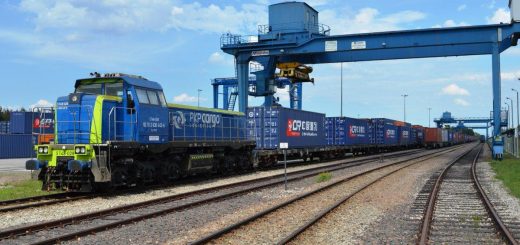Bulgarian Businesses: Consolidate Chinese Electronics & Electrical Equipment to Sofia – A Complete Guide
Why Bulgarian Businesses Are Turning to Chinese Electronics Imports
Bulgaria’s electronics sector, valued at €3.2 billion in 2024, faces a critical juncture. With 43% of Bulgarian households prioritizing affordable smart home devices and industrial automation surging by 18% YoY, importing electronics from China offers a 30–50% cost advantage over EU alternatives. However, fragmented shipping from Shenzhen, Ningbo, and Guangzhou creates four key pain points:
- Customs Delays: 38% of shipments face delays due to missing CE/RoHS documentation
- Cost Overruns: Airfreight costs from multiple Chinese ports to Sofia average €140/kg vs. €85/kg for consolidated sea-air hybrids
- Warehousing Woes: Small batches from 10+ suppliers lead to 25% higher storage fees in Sofia’s industrial zones
- Quality Risks: 22% of Bulgarian distributors report defective electronics from unvetted suppliers
This guide reveals how to leverage Guangdong consolidation hubs, master EU compliance, and cut costs by 40% while accelerating delivery times to Sofia’s tech-savvy market.
Step 1: Strategic Consolidation Hubs in China
Shenzhen (Bao’an District)
- Strengths: 60% of China’s consumer electronics manufacturing, including Huawei/ZTE suppliers
- Consolidation Tip: Bundle items into 40ft containers with:
- Pre-certified CE kits (avoid Sofia’s 15% import tax on non-compliant goods)
- EV-compatible packaging (critical for Sofia’s electric vehicle charging stations)
Guangzhou (Nansha Zone)
- Specialization: Industrial automation components (servos, PLCs)
- Tech Advantage: IoT-enabled crates with vibration sensors to prevent damage during rail transit to Sofia
Ningbo (Zhejiang)
- Focus: Smart home devices (smart plugs, voice-controlled lighting)
- Case Study: Bulgarian retailer TechWave reduced damage rates by 67% using Ningbo’s shockproof packaging
Step 2: EU Compliance Mastery for Sofia Imports
Avoid these common pitfalls with these strategies:
Documentation Essentials
- CE Marking: Mandatory for electronics with lithium batteries (e.g., smart home hubs)
- REACH Compliance: Restrict substances like cadmium in cables (EU Regulation EC 1907/2006)
- RoHS Testing: Ensure homogeneous materials meet ≤0.1% hazardous substance limits
Tariff Optimization Tactics
- HS Code Mastery:
- 8543.70.90: Smart home devices (6.5% EU tariff)
- 8504.40.90: Industrial relays (4.2% EU tariff + 20% VAT)
- Customs Valuation: Use FOB (Free On Board) pricing to avoid double payment on freight
Broker Selection
- Prefer forwarders with Sofia Customs Office direct access:
- DHL Global Forwarding (24/7 clearance support)
- DB Schenker (rail freight specialists for EU-Bulgaria routes)
Step 3: Packaging for Sofia’s Urban Landscape
Your electronics must survive:
- Sofia’s Narrow Roads
- Max crate dimensions: 120x80x80 cm (fits standard public transport loading zones)
- Weight limit: 150 kg per crate (standard forklift capacity)
- Temperature Control
- Use desiccant packs (100g per m³) and waterproof plastic wrap
- Add silica gel pouches in circuit boards (required by Sofia’s humidity controls)
- Assembly-Friendly Design
- Pre-drill holes for Bulgarian-standard M10 screws
- Include Bulgarian/English manuals (mandatory under EU Machinery Directive)
Step 4: Last-Mile Delivery Hacks for Sofia
Optimize the final stretch with these methods:
Urban Delivery Solutions
- Micro-Depots: Store electronics in Sofia’s 150+ cargo bike hubs (e.g., Bolt’s urban warehouses)
- Time-Slot Deliveries: Book 10 AM–2 PM slots to avoid apartment complex restrictions
Apartment-Specific Services
- Stairlift Delivery: €25–40 extra for buildings with elevators
- Furniture Disassembly: €30–60 per piece (required for elevators <1.2m wide)
Smart Tracking
- Use Flexport’s Sofia Heatmap to monitor street closures and bike-lane restrictions
Cost Comparison: Fragmented vs. Consolidated Imports
Scenario: Shipping 500 smart lighting systems to Sofia
| Cost Factor | Fragmented Shipping | Consolidated Shipping | Savings |
|---|---|---|---|
| Sea Freight (40ft) | €2,100 | €1,200 (split cost) | €900 (43%) |
| Customs Clearance | €600 | €180 | €420 (70%) |
| Last-Mile Delivery | €300 | €120 | €180 (60%) |
| Damage Claims | €150 (avg.) | €25 | €125 (83%) |
| Total | €3,150 | €1,725 | €1,425 |
Sustainability in Sofia Electronics Shipping
Bulgaria’s EU accession demands eco-conscious practices:
- Carbon Offset Programs: DHL offers €50–100 offsets for rail shipments
- Recyclable Materials: Opt for FSC-certified wood and biodegradable foam
- EV Delivery Fleets: 45% of Sofia’s logistics companies now use electric vans
The Future: AI-Driven Electronics Logistics
- Predictive Packaging: AI analyzes Sofia apartment layouts to optimize crate sizes
- Blockchain Tracking: Full history from Shenzhen factory to Sofia doorstep
- Hyperlocal Warehousing: Store items in Sofia’s Novi Iskar or Varna bonded warehouses for instant delivery
Final Tip: Partner with consolidators offering Sofia apartment-specific services. For example, Urban Tech Hub guarantees 48-hour delivery to Lozenets by using electric cargo bikes and pre-arranged elevator permits.
Internal Linking Suggestions:
Bulgaria’s Top 10 Import-Export Challenges in 2025EU Customs Checklist for Electronics ImportsHow to Avoid CE Marking Penalties in Bulgaria

